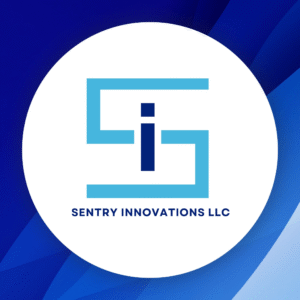Understanding the J-1 Visa: A Comprehensive Guide for Applicants
The J-1 Visa is a non-immigrant visa that allows individuals from around the world to participate in work-and-study-based exchange visitor programs in the United States. This comprehensive guide aims to provide potential applicants with essential information regarding the J-1 Visa, including its categories, application process, and important considerations.
What is the J-1 Visa?
The J-1 Visa is designed to promote cultural exchange and mutual understanding between the United States and other countries. It facilitates various programs that allow foreign nationals to gain experience, enhance their education, and share their culture with Americans. The J-1 Visa is primarily aimed at students, scholars, and professionals, making it a versatile option for many individuals seeking opportunities in the U.S. By fostering these exchanges, the J-1 Visa not only benefits the participants but also enriches the American cultural landscape, creating a tapestry of diverse perspectives and experiences.

Categories of J-1 Visa Programs
There are several categories under the J-1 Visa, each tailored to specific types of exchange programs. Some of the most common categories include:
- Interns: This category is for students or recent graduates who wish to gain practical experience in their field of study.
- Trainees: Designed for professionals who have a degree or professional certificate and are seeking to enhance their skills through training in the U.S.
- Teachers: This category allows foreign educators to teach in U.S. primary and secondary schools.
- Research Scholars: Aimed at individuals conducting research at U.S. universities or research institutions.
- Au Pairs: For individuals who provide childcare services while living with an American family.
Each of these categories serves a distinct purpose and is governed by specific regulations to ensure that the exchange experience is mutually beneficial. For instance, interns may work in various industries, from technology to hospitality, allowing them to apply their academic knowledge in real-world settings. Similarly, teachers not only impart knowledge but also bring unique educational methodologies from their home countries, which can inspire new teaching practices in American classrooms. This cross-pollination of ideas is a key aspect of the J-1 Visa program, enhancing the learning environment for both the exchange visitors and their American counterparts.
Eligibility Requirements
To qualify for a J-1 Visa, applicants must meet specific eligibility criteria that vary by category. Generally, applicants must possess a valid passport, be proficient in English, and have sufficient funding to support themselves during their stay. Additionally, each program may have unique requirements, such as educational qualifications or work experience. For example, interns may need to provide proof of enrollment in a degree program, while research scholars might be required to submit a detailed research proposal outlining their objectives in the U.S.
Moreover, understanding the application process is crucial for potential J-1 Visa applicants. This often involves securing a sponsor organization, which plays a vital role in facilitating the exchange program. The sponsor is responsible for providing guidance throughout the application process, ensuring that participants comply with the necessary regulations, and offering support during their stay in the U.S. This relationship not only helps streamline the visa application but also enhances the overall experience by connecting participants with resources and networks that can aid their professional and personal growth during their time abroad.
The Application Process
Applying for a J-1 Visa can be a detailed process, requiring careful preparation and attention to detail. The steps involved are crucial for ensuring a successful application.
Step 1: Find a Designated Sponsor
Before applying for a J-1 Visa, individuals must first find a designated sponsor organization approved by the U.S. Department of State. These sponsors are responsible for overseeing the exchange program and ensuring compliance with regulations. Each sponsor has its own application procedures, fees, and program offerings, so it's essential to research and select one that aligns with your goals. Additionally, many sponsors offer various programs tailored to specific fields, such as research, teaching, or internships, which can significantly enhance your experience in the U.S. Connecting with former participants or reading testimonials can provide valuable insights into the sponsor's reputation and the quality of their programs.
Step 2: Complete the DS-2019 Form
Once a sponsor is selected, the next step is to complete the DS-2019 form, also known as the Certificate of Eligibility for Exchange Visitor Status. This form is issued by the sponsor and outlines the details of the exchange program, including the duration and funding sources. It is a critical document required for the visa application. The information provided on the DS-2019 must be accurate and reflect your intended activities in the U.S., as discrepancies can lead to delays or denials. Moreover, it's advisable to carefully review the program's start and end dates, as this will impact your travel plans and any potential extensions you may wish to pursue during your stay.
Step 3: Pay the SEVIS Fee
After receiving the DS-2019 form, applicants must pay the SEVIS (Student and Exchange Visitor Information System) fee. This fee supports the maintenance of the SEVIS database, which tracks exchange visitors during their stay in the U.S. Payment can be made online, and it is essential to keep the receipt, as it will be required during the visa interview. It's worth noting that the SEVIS fee is non-refundable, so applicants should ensure they are fully prepared before making the payment. Additionally, understanding the timeline for processing the SEVIS fee payment is crucial, as it can take a few days for the payment to be reflected in the system, and visa appointments can fill up quickly. Being proactive in this step can help avoid unnecessary stress as your interview date approaches.
Preparing for the Visa Interview
The visa interview is a pivotal part of the J-1 Visa application process. Proper preparation can significantly impact the outcome of the interview.

Gather Required Documents
Applicants should compile all necessary documents well in advance of the interview. Commonly required documents include:
- Valid passport
- DS-2019 form
- SEVIS fee payment receipt
- Visa application form (DS-160)
- Proof of financial support
- Evidence of ties to the home country
Practice Common Interview Questions
During the interview, consular officers may ask various questions to assess the applicant's intentions and qualifications. Common questions may include:
- Why do you want to participate in this exchange program?
- How will this experience benefit your career?
- What ties do you have to your home country that will ensure your return?
Practicing responses to these questions can help applicants feel more confident and prepared.
Dress Appropriately and Be Punctual
First impressions matter, and dressing appropriately for the interview can convey professionalism. Additionally, arriving on time is crucial, as it demonstrates respect for the interviewer's time and the process as a whole.
Post-Interview Steps
After the interview, applicants will either receive their visa approval or denial. Understanding the next steps is essential for those who are approved.
Receiving the Visa
If the visa is approved, the applicant will be informed about when and how to collect their passport with the visa stamp. It is crucial to review the visa for any errors and ensure that all information is correct before traveling.
Preparing for Departure
Once the visa is in hand, applicants should begin preparing for their departure to the U.S. This includes arranging travel plans, securing accommodation, and ensuring that all necessary documents are organized for entry into the United States.
Understanding the Program Duration and Requirements
Each J-1 Visa program has specific duration limits and requirements for maintaining status while in the U.S. Participants must adhere to the terms of their program, including reporting to their sponsor and maintaining health insurance coverage throughout their stay.
Common Challenges and Considerations
Cultural Adjustment
Moving to a new country can be both exciting and overwhelming. Cultural adjustment is a common challenge faced by many exchange visitors. It is essential to be open-minded and adaptable, as navigating a new culture can take time. Engaging with local communities, participating in cultural events, and connecting with fellow exchange visitors can ease this transition.
Maintaining Visa Status
Maintaining J-1 Visa status is crucial for the success of the exchange experience. Participants must comply with program requirements, including attending all scheduled activities and reporting any changes in their circumstances to their sponsor. Failure to maintain status can lead to serious consequences, including deportation.
Two-Year Home Residency Requirement
Some J-1 Visa holders may be subject to the two-year home residency requirement upon completion of their program. This means that they must return to their home country for at least two years before being eligible to apply for certain U.S. visas or permanent residency. Understanding this requirement is essential for long-term planning.
Conclusion
The J-1 Visa presents a valuable opportunity for individuals seeking to broaden their horizons through cultural exchange and professional development in the United States. By understanding the application process, preparing adequately for the visa interview, and navigating the challenges of living in a new country, applicants can maximize their experience and contribute positively to the exchange program.

As the world becomes increasingly interconnected, the J-1 Visa serves as a bridge for fostering international relationships and enhancing global understanding. For those considering this path, thorough preparation and a proactive approach can lead to a rewarding and enriching experience.
Your Journey Made Simple with Sentry Innovations LLC
Don't let the complexities of immigration stand in your way. At Sentry Innovations, we specialize in turning challenges into opportunities. Our dedicated experts offer personalized consulting services designed to streamline the process, giving you confidence every step of the way.
Your dreams are within reach—let us help you make them a reality. Discover how our immigration consulting services can work for you. Contact us today!

